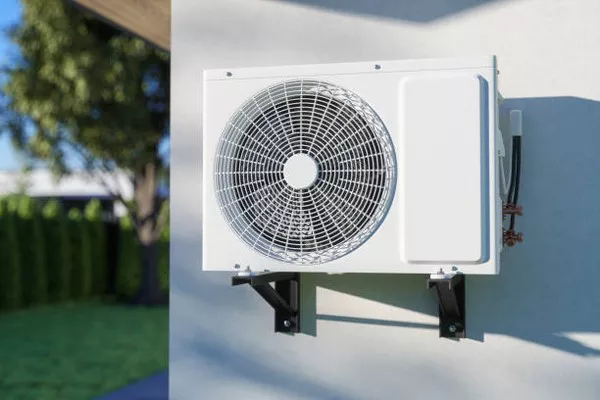Compressors are the backbone of many industrial, commercial, and residential applications, serving various purposes from refrigeration to air conditioning. However, encountering a situation where your compressor isn’t turning on can be frustrating and disruptive to operations. Understanding the potential causes behind this issue is crucial for effective troubleshooting and timely resolution. In this comprehensive guide, we’ll delve into the common reasons why compressors fail to start and provide actionable solutions.
Power Supply Issues:
The most basic yet often overlooked cause of a compressor not turning on is a power supply problem. Before delving into complex troubleshooting, ensure that the compressor is receiving adequate power. Check the power source, circuit breaker, and any fuses associated with the compressor. Loose connections or tripped breakers can easily disrupt the power supply to the compressor, preventing it from starting.
Solution: Inspect the power source, reset tripped breakers, and tighten any loose connections. If necessary, consult an electrician to address any underlying electrical issues.
Faulty Capacitor:
Capacitors play a vital role in providing the initial jolt of electricity required to start the compressor motor. When a capacitor fails or becomes faulty, it can hinder the compressor’s ability to start up, resulting in a non-responsive unit.
Solution: Test the capacitor using a multimeter to determine if it’s functioning correctly. If the capacitor is defective, replace it with a new one compatible with your compressor model.
Contactor Problems:
Contactor relays are responsible for initiating the electrical connection between the power source and the compressor motor. Over time, contactors can wear out or accumulate dirt and debris, leading to connectivity issues and preventing the compressor from starting.
Solution: Inspect the contactor for signs of wear, corrosion, or debris accumulation. Clean or replace the contactor if necessary to ensure proper electrical contact.
Overload Protection:
Compressor motors are equipped with overload protection devices designed to safeguard against overheating and electrical overload. If the compressor motor draws excessive current or experiences a thermal overload, the overload protection device may trip, preventing the compressor from starting.
Solution: Allow the compressor motor to cool down and reset the overload protection device if applicable. Investigate the underlying cause of the overload, such as a blocked air intake or a malfunctioning component, and address it accordingly.
Low Refrigerant Levels:
In refrigeration and air conditioning systems, insufficient refrigerant levels can prevent the compressor from starting. Low refrigerant levels may indicate a leak in the system or improper installation, leading to inadequate pressure and preventing the compressor from operating.
Solution: Conduct a thorough inspection of the refrigeration system to identify any leaks or potential points of refrigerant loss. Repair any leaks and recharge the system with the appropriate refrigerant to the recommended levels.
Thermostat Malfunction:
A malfunctioning thermostat can disrupt the compressor’s operation by failing to signal the cooling or heating demand. If the thermostat fails to send the appropriate signals to the compressor, it may not initiate the startup sequence, resulting in a non-responsive unit.
Solution: Test the thermostat for proper functionality by adjusting the temperature settings and observing the compressor’s response. Replace the thermostat if it fails to signal the compressor correctly.
Compressor Motor Issues:
Issues directly related to the compressor motor, such as a faulty motor winding or seized bearings, can prevent the compressor from starting. Motor problems may stem from age, wear and tear, or inadequate maintenance.
Solution: Conduct a comprehensive inspection of the compressor motor, including the windings, bearings, and electrical connections. Replace any damaged components or seek professional assistance if the motor requires repair or replacement.
Environmental Factors:
External environmental factors such as extreme temperatures, humidity, or debris accumulation can impact the compressor’s operation. Excessive heat or moisture can affect electrical components, while debris accumulation around the compressor unit can impede airflow and ventilation.
Solution: Ensure that the compressor unit is installed in a suitable environment with adequate ventilation and protection from the elements. Clean the surrounding area regularly to prevent debris buildup and maintain optimal airflow.
Control Board Malfunction:
In modern compressor systems, electronic control boards govern the operation and sequencing of various components, including the compressor motor. A malfunctioning control board can disrupt the startup sequence, preventing the compressor from initiating operation.
Solution: Test the control board for any signs of damage or malfunction using appropriate diagnostic tools. Replace the control board if necessary and ensure compatibility with your compressor system.
See Also What Are The Signs Of A Failing Compressor
Conclusion:
A compressor not turning on can disrupt operations and lead to downtime in various applications, from refrigeration to air conditioning. By understanding the common causes behind this issue and implementing appropriate troubleshooting steps, you can effectively diagnose the problem and restore the compressor to optimal functionality. From power supply issues to compressor motor problems, each potential cause requires careful inspection and systematic troubleshooting for successful resolution. By following the guidelines outlined in this article, you can identify the underlying issue affecting your compressor and implement timely solutions to ensure smooth operation and minimal downtime.

